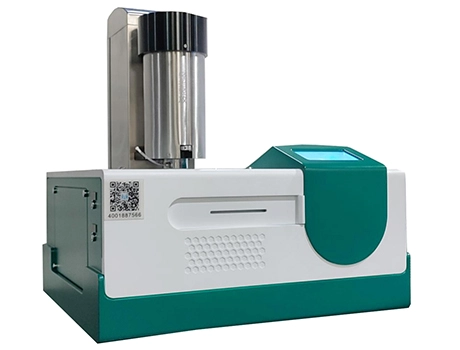The fields of chemistry, biology, and material science are evolving more rapidly than ever before. In this rapidly evolving world, the role of advanced techniques and methodologies cannot be understated. One such critical technique is the use of Differential Scanning Calorimetry (DSC), a method employed in thermal analysis that measures how a material's heat capacity changes with temperature. This article provides a comprehensive review of the utilization of this important analytical tool.
Differential Scanning Calorimetry, commonly known as DSC, is an analytical thermoanalytical technique that quantifies the differences in the amount of heat required to increase the temperature of a sample and reference. The technique, which has been significantly improved and refined over the years, is designed to monitor changes in material properties such as phase transitions, crystallization, melting points, and glass transition temperatures, among others.
In a standard DSC setup, the material under study and an inert reference are heated concurrently with the same amount of heat. Any differences in the amount of heat required to raise the temperature of the sample and the inert reference are measured as a function of temperature. Both the sample and reference are maintained at nearly the same temperature throughout the experiment. Precise measurement of the temperature difference and the heat flow leads to quantifiable data regarding endothermic and exothermic reactions in the tested sample.
Click for Differential Scanning Calorimeter for Sale
The use of Differential Scanning Calorimetry skews important in both research and quality control applications and extends to various industries. Scientists in the pharmaceutical, food, polymer, and metallurgical industries utilize DSC for identifying changes in a material’s properties. It also provides qualitative data about phase transitions and the presence of impurities.
Quality control laboratories make use of DSC to monitor batch to batch consistency and check the thermal stability of products. In academic and industry research labs, the technique is an invaluable tool in studying polymers, including determining whether a polymer is amorphous or crystalline.
Renowned brands such as Heven have introduced differential scanning calorimeters that offer a new level of performance and convenience. These sophisticated instruments have revolutionized material testing by offering high-quality data, broad temperature ranges, and an array of sample holder options to suit different applications.
In recent years, the use of modulated DSC (MDSC) has increased significantly. MDSC involves superimposing a modulated temperature program on top of the conventional linear heat rate program of standard DSC. This additional modulation provides the ability to separate overlapping events and to analyze the reversing and non-reversing heat flow components of complex thermal transitions.
While DSC has already proved its worth, future advancements will only improve its capacity and applicability. As material science continues to broaden and deepen, the demand for sophisticated analytical tools will continue to grow. Planned advancements in DSC focus on improving resolution, sensitivity, and automation.
In conclusion, the use of Differential Scanning Calorimetry is integral to the progress in the fields of chemistry, biology, and material science. As the technique continues to evolve, so will our understanding of materials and their properties. The future of DSC looks bright, with the promise of significant advancements in the pipeline to further revolutionize scientific research and industrial applications. Choose reliable differential scanning calorimeter manufacturers to elevate your experiment.
